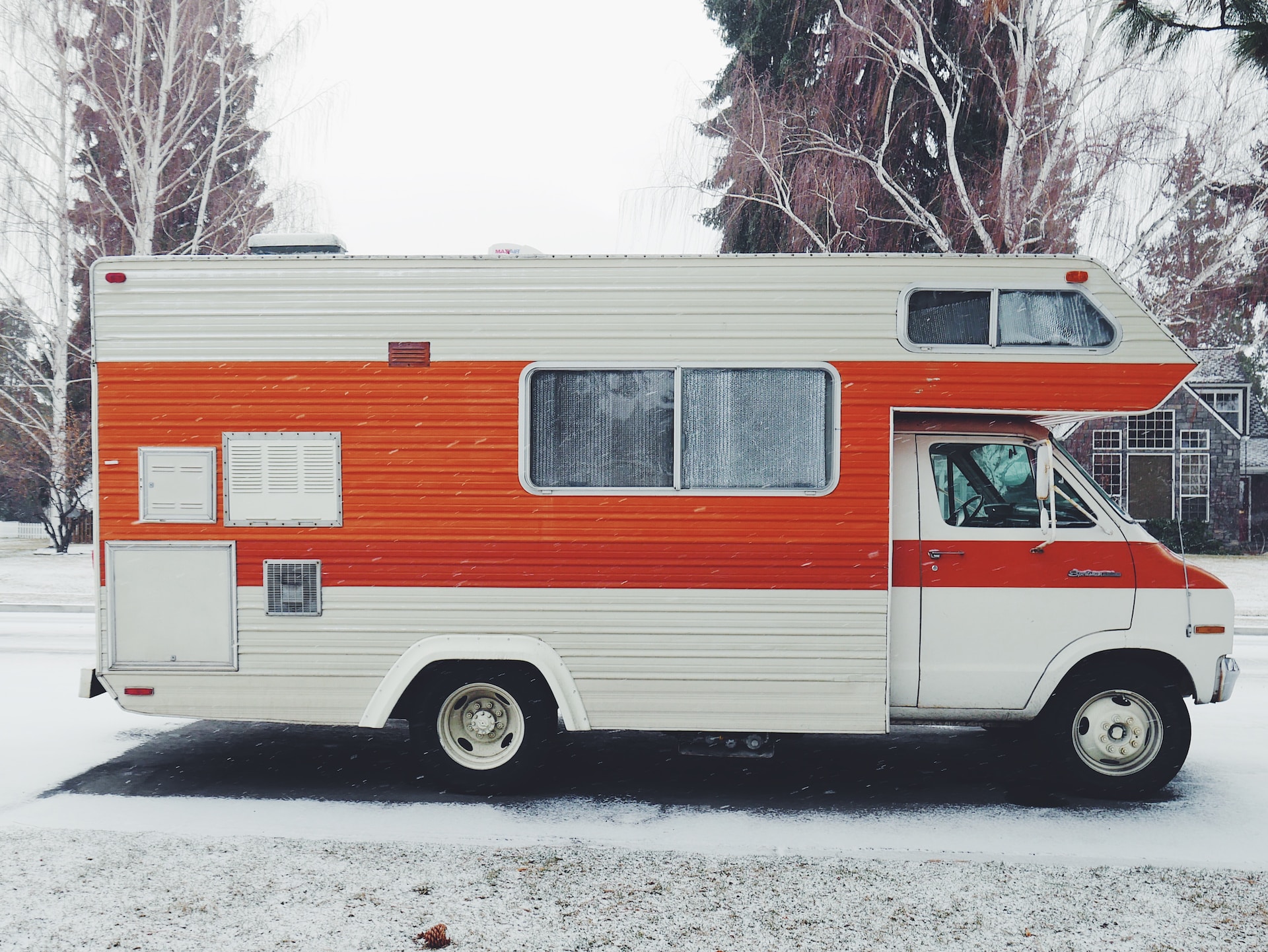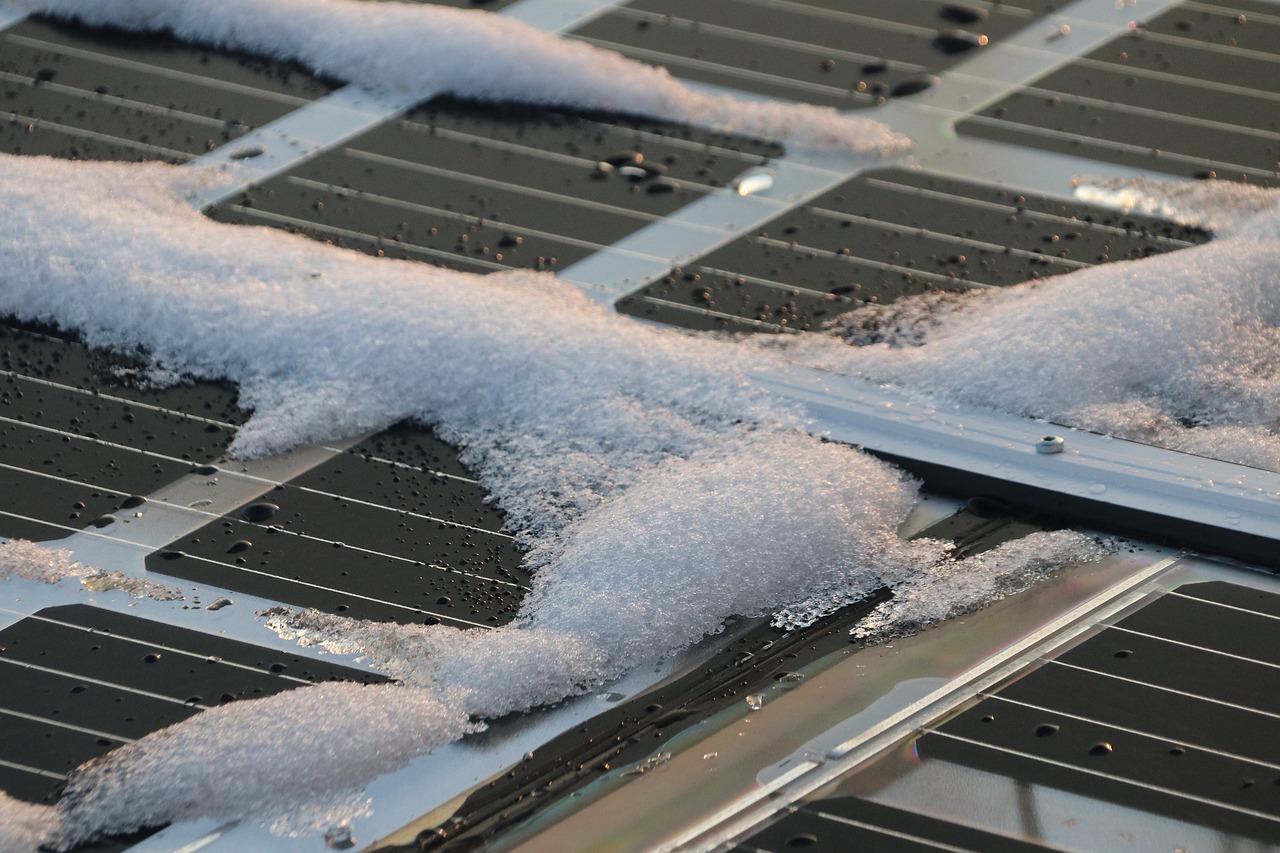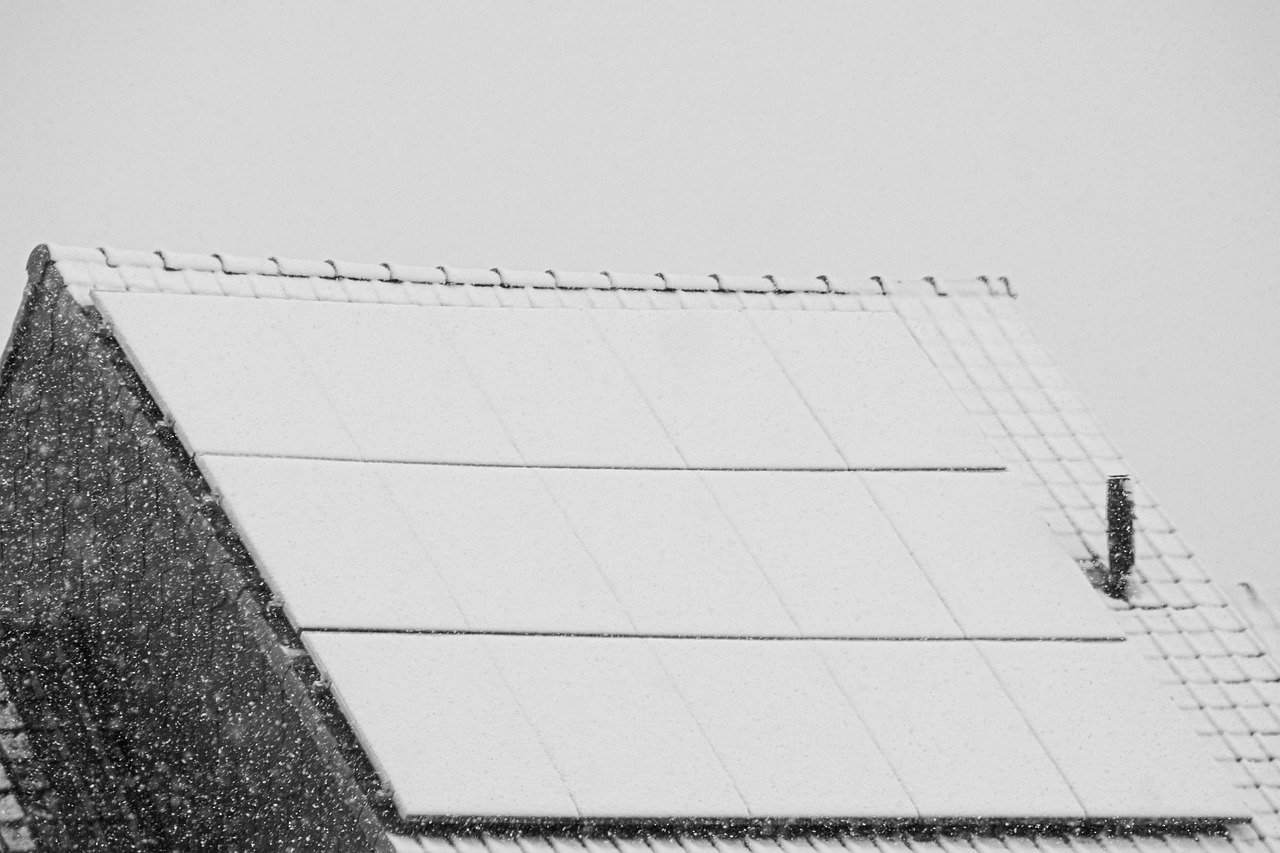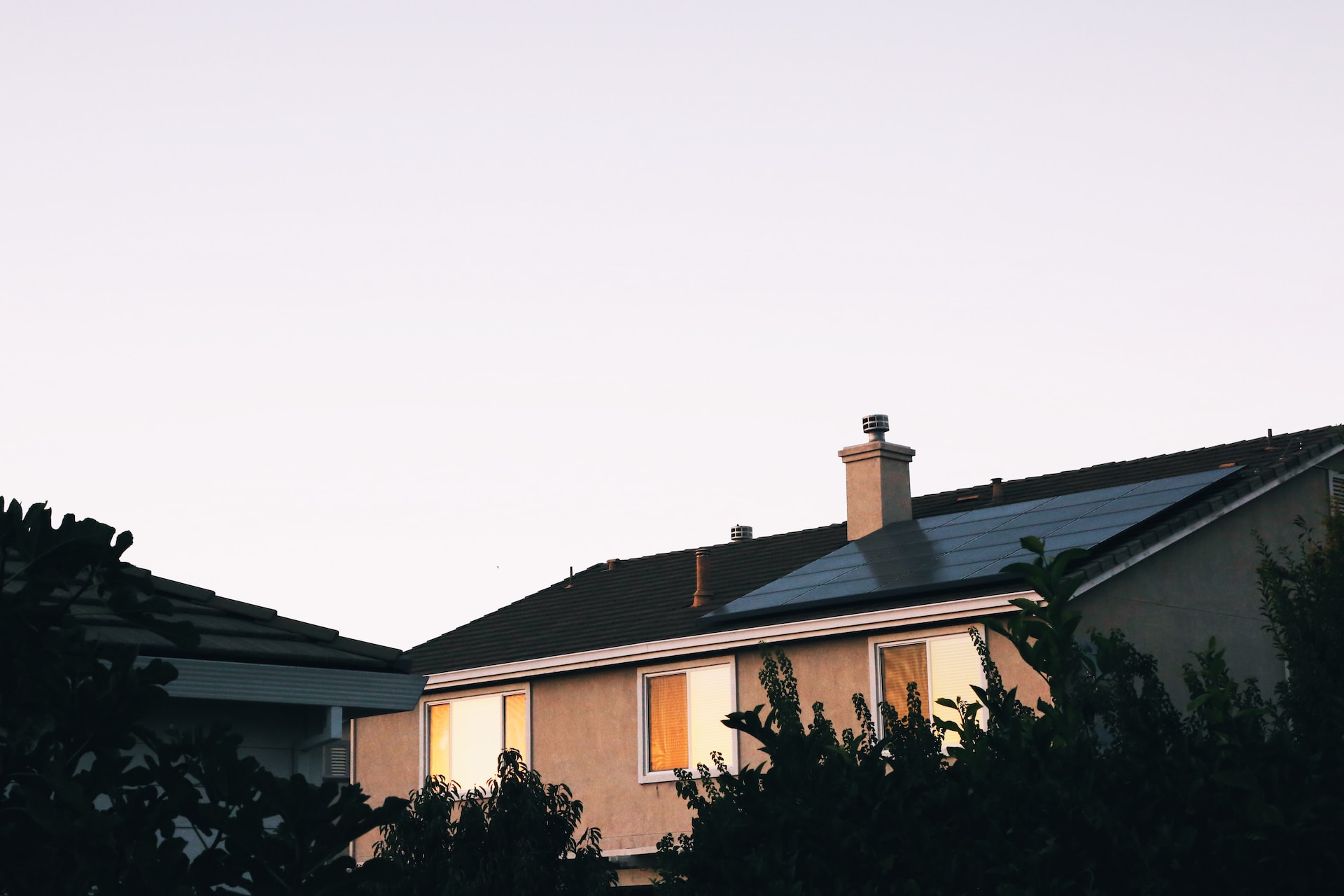
Solar 101
How Does Snow Affect Solar Panels?
Optivolt
May 18, 2023
4 min read
Are you worried about how snow might affect your solar panels? Unless you live in the ever-sunny Southwest, your solar panels will inevitably have to endure winter storms each year.
Snow is not inherently bad for your solar panels, but it can pose a few issues. If snow accumulates on a panel, it will block out the precious sunlight that allows your solar array to produce electricity. And if heavy snow is left to sit on your solar array, it can have negative effects on the mounting hardware.
Let's explore how snow can affect solar panels in further detail.
Solar Panels in Snow: Reduced Efficiency
When snow accumulates and blocks out just a small portion of a panel, the rest of the panel's output decreases dramatically. Once a few cells are obstructed, the panel's output drops to nearly zero. The same thing happens when panels are partially obstructed by trees, buildings, and other structures — most solar panels do not work in the shade.
Because of this fact, constant vigilance is required in the winter to keep your panels free of snow and producing as much power as possible. You will need to hop on the roof and clear your panels whenever you receive more than a dusting.
To ensure that an off-grid solar array produces enough power in the winter, homeowners can utilize shade-tolerant solar panels. These modules are not limited by the shading of one cell like traditional panels. Heavy snow will still need to be cleared off, but they will perform well in light snow and other partially-shaded situations.

Lower efficiency is less of a concern for grid-tied solar power. If power generation is reduced, these systems can utilize power from the electric grid. When an off-grid system experiences heavy snowstorms, they run the risk of running out of power altogether.
In addition, residential systems usually produce more power in the summer than the household can consume. Utility companies will compensate homeowners for this extra electricity in most states under net-metering laws. This profit can then be applied towards your electricity bill in the winter months, when snow and low sun hours reduce power generation.
Heavy Snow on Solar Panels
When you receive a heavy snow, power generation becomes a secondary issue (as long as you are grid-tied or your solar batteries are charged up). Instead, the weight of the snow could pose a problem for your panels' support structures.
Heavy snow can put stress on the solar panel support structures due to the way they are constructed and mounted. For extended snowstorms, you will need to clear the snow as soon as possible to prevent immediate or future damage to your panels. Heavy snow accumulation for a long period of time will affect the long-term integrity of your mounting system.
Fixing the Problem
There are a few steps you can take to minimize the effect that snow has on your solar power system:
- Removing Snow from Solar Panels: In general, solar panels require minimal maintenance. But if your area receives heavy snow, you will need to stay on top of snow removal to keep your system functioning at maximum efficiency. Keep safety in mind when working on your roof, and feel free to hire a professional if necessary. Your safety is more important than your solar panels.
- Tilt Angle: If you adjust your panels to a higher tilt angle in the winter, you will receive two benefits. First, snow will slide off easier. Plus, your panels will be facing the sun’s lower path through the winter sky. Consult our tilt angle and orientation guide for more details.
- Shade-Tolerant Solar Panels: In light storms, only part of some panels will become blocked by snow. However, this can have a large impact on power generation. When one portion of a panel becomes obstructed, the rest of the panel’s output will suffer. [Shade-tolerant solar panels]((https://optivolt.com/optivolt100) can mitigate this issue — these panels perform better than traditional solar panels when part of a panel is blocked out.

Can Snow Benefit Solar Panels?
A light dusting of snow on solar panels can provide at least one benefit. Snow has anti-soiling properties that cause it to bond with dirt. When the snow melts, it will take dust and dirt with it, exposing your panels to more sunlight (the same effect can be observed on your car windshield). This allows your panels to work at a higher efficiency as long as they stay free of snow. In addition, very cold weather significantly increases the conversion efficiency of the solar cells by reducing cell temperature, giving the solar panel a slight powerup during lower light availability all winter.
Conclusion
Heavy snow brings a few issues to your solar array. The snow can block out sunlight, reducing the efficiency of your panels. Plus, the weight of heavy snow can damage the mounting hardware that supports your solar panels.
In order to maximize energy production in snowy conditions, try utilizing solar panels that work in partial-shade. Optivolt is leading the research and production of shade-tolerant solar panels. Their Pulse technology equips solar modules with the ability to perform at maximum efficiency — even when part of the panel is obstructed by snow.
